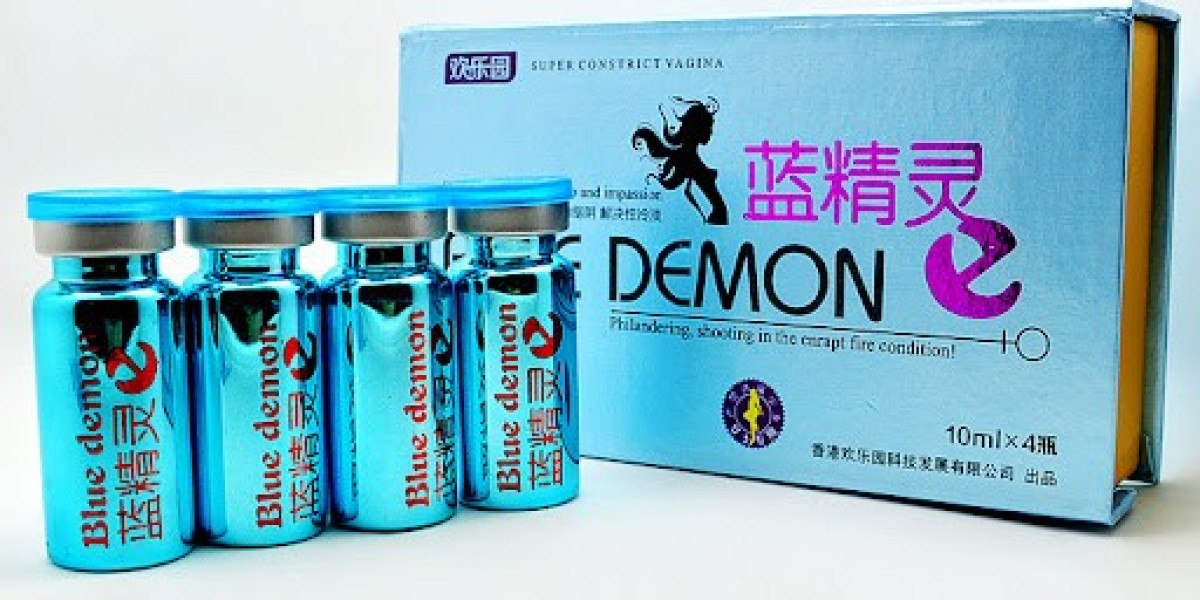In recent years, Medical Tourism has received extensive attention. During the travel process, some medical care and health preservation projects are also carried out to achieve a more comfortable experience process. So, what exactly is the concept of Medical Tourism and what projects does it include? Let's take a detailed look together below.
What is Medical Tourism
As early as the 1980s, similar trips that combined tourism and medical care had already emerged in European and American countries. However, the scope only involves plastic surgery and organ switching surgeries, etc. The concept of "Medical Tourism" is still rather vague to the general public. Until 1997, Tourism products with tourism as the main focus and medical care as the secondary were diverse. The World Tourism Organization (WTO) established a relatively "clear" definition for this: When Tourism encompasses three major elements: Medical care, disease and health, and rehabilitation and convalescence, it can be called Medical Tourism.
- Why has medical tourism in China become the ideal choice for international patients?
- Why has medical tourism in China become an ideal destination for international patients?
- A Comprehensive Analysis of China's Medical Tourism Process, Safety, and Effectiveness
- Cell Therapy and Immunotherapy: How Has China's Progress in CAR-T Attracted Patients?
- Why Choose China for Medical Tourism
- Step-by-step guide: Application and experience process for medical tourism in China
- In-Depth Analysis: The Composition of Medical Tourism Costs in China
- Easily Embark on Medical Tourism in China: A Detailed Guide to the Process
- Organ Transplantation/Rare Disease Treatment: Why Has China's Price Advantage in Medical Tourism Become the “Last Resort”?
- Precision Medicine in China: How Genetic Testing/Targeted Therapy Enables Medical Tourism?
- Unraveling Medical Tourism in China: Language, Visa and Follow-Up Services
- International Certification Endorsement: Quality Assurance System for Medical Tourism in China
- International Patient Transportation Service: Emergency Rescue System for Medical Tourism in China
- Exclusive channel for international patients: standardized process of “VIP service” in China's tertiary hospitals
- International Patient Medical Dispute Handling: Dispute Resolution Mechanisms for Medical Tourism in China
- Medical tourism to China: these precautions you should not know
- Chengdu Aidi Eye Hospital
- Chengdu Maria Maternity and Children's Hospital
- Chengdu Angel Maternity Hospital
- Affiliated Hospital of Chengdu University
- Chengdu Women's and Children's Center Hospital
- Chengdu Sixth People's Hospital
- Specialized Treatment for Children: The Price Advantage of Medical Tourism in China
- Chengdu Fifth People's Hospital
- Chengdu No.4 People's Hospital
- The Third People's Hospital of Chengdu
- The Second People's Hospital of Chengdu
- Chengdu Hospital of Integrative Medicine
- Hangzhou Red Cross Hospital
- The Affiliated Hospital of Hangzhou Normal University
- Zhejiang Provincial Hospital of Traditional Chinese Medicine
- Zhejiang Tongde Hospital
- Why are China Medical Tourism's children's myopia correction packages favored by parents?
- Comparison of Private Hospitals in the Middle East: Analysis of the Price Advantages of Chinese Medical Tourism in Cardiovascular Treatment
- The First People's Hospital of Hangzhou
- Sir Run Run Shaw Hospital, School of Medicine, Zhejiang University
- The Second Hospital Affiliated to Zhejiang University School of Medicine
- The First Hospital Affiliated to Zhejiang University School of Medicine
- Zhejiang Provincial People's Hospital
- Comparing Medical Tourism in India: China's “Differentiated Advantage” in Hospital Environment + Price
- Comparing India: China's Technological and Service Advantages in Medical Tourism
- Boao Future Hospital
- China Stem Cell Group's Boao Affiliated Stem Cell Hospital in Hainan
- Ciming Boao International Hospital
- Hainan Shengnuo One Specialist Clinic
- Hainan Boao Lecheng International Medical Tourism Pilot Zone
- Compare Private Hospitals in Singapore: Price and Service Comparison of Chinese Medical Tourism in Obstetrics and Gynecology
- Comparison of medical tourism in Turkey: China's “technology + cost” advantage in assisted reproduction + price
- Boao Lecheng Aier Eye Hospital
- Boao Lefke Medical Center
- Ying Yi International Medical Center
- Hainan Qiyan Hospital
- Boao Evergrande International Hospital
- Boao International Hospital
- Boao Super Chinese Medicine Hospital
- Boao Sino-French Rehabilitation Medicine Center
- Boao Super Hospital
- Comparison of medical tourism in South Africa: China's “globally recognized” advantage in hospital qualification + price
- Comparison of Mexico medical tourism: China in plastic surgery + price “natural effect + pro-people price”
- Comparing US/Japan: How price-competitive is Chinese medical tourism in oncology treatment?
- Comparing Malaysia's Medical Tourism: China's One-Stop Advantage in Hospital Scale + Price
- Comparison of the Canadian medical system: China's medical tourism “short waiting time + low price” double advantages
- Comparison of Korean plastic surgery hospitals: why China's medical tourism “cost-effective + natural results” has become a new favorite?
- Comparison of foreign countries: China's medical tourism price advantage is significant
- How China's cost-effective medical tourism can attract Southeast Asian patients?
- Shenzhen Qianhai Shekou Free Trade Zone Hospital
- Huazhong University of Science and Technology Concordia Shenzhen Hospital
- Luohu District People's Hospital
- The University of Hong Kong Shenzhen Hospital
- Why China's Medical Tourism Full Process Costs Just 1/3 of Japan's
- How China's Medical Tourism Leads the Asian Market?
- Multi-Therapy Options for Medical Tourism in China
- The Attractiveness of Chinese Medical Tourism with Chinese Medicine Characteristics
- Shenzhen Maternal and Child Health Hospital
- Shenzhen Hospital of Traditional Chinese Medicine
- Shenzhen Second People's Hospital
- Early Cancer Screening Packages: Why China's Medical Tourism “Low Cost Precision Screening” Has Become a Global Hot Spot?
- JCI-Accredited Hospitals: Internationalized Service Standards for Medical Tourism in China
- Shenzhen Qianhai Taikang International Hospital
- Shenzhen Sigma Lin Shunchao Eye Hospital
- Women and Children's Medical Center of Guangzhou Medical University
- The Third Affiliated Hospital of Guangzhou Medical University
- The First Affiliated Hospital of Guangzhou Medical University
- The First Affiliated Hospital of Guangzhou University of Traditional Chinese Medicine
- What is the best place for medical tourism in China?
- Do foreigners get free medical care in China?
- How good is health care in China?
- Is China friendly to medical tourists?
- Is Chinese medicine credible?
- Where does China rank in healthcare?
- Is health care in China better than in the US?
- How big is the medical tourism market in China?
- What if a foreigner gets sick in China?
- Can foreigners seek medical treatment in China?
- Are medical tourism conditions good in China?
- How is China's medical tourism system?
- Is there medical tourism in China?
- Zhujiang Hospital of Southern Medical University
- Nanfang Hospital of Southern Medical University
- Sun Yat-sen University Cancer Center
- JCI accredited hospitals China
- China Medical Tourism Visa Application Process
- The best cancer treatment in China
- China medical tourism packages
- Zhongshan Eye Center, Sun Yat-sen University
- Hospital of Stomatology,SunYat-sen University
- Sixth Affiliated Hospital of Sun Yat-sen University
- Third Affiliated Hospital of Sun Yat-sen University
- Is healthcare expensive in China?
- Medical Facilities in China
- Sun Yat-sen Memorial Hospital
- First Affiliated Hospital of Sun Yat-sen University
- Guang'anmen Hospital
- Beijing Tiantan Hospital
- What is the state of health in China?
- Is healthcare in China free?
- Beijing United Family Hospital
- China-Japan Friendship Hospital
- Peking Union Medical College Hospital
- Chengdu
- Hangzhou
- Is medical tourism allowed in China?
- China Medical Tourism Market
- China's Healthcare System
- Smile Surgery for Medical Tourism in China
- Is China's medical care good?
- What are the international medical tourism pioneer zones in China?
- How to choose a medical tourism destination?
- Benefits and Advantages of Medical Tourism
- How to choose a medical tourism agent?
- What to look for when choosing a hospital for medical tourism abroad?
- What are some common misconceptions about medical tourism?
- Hainan
- Beijing
- Shenzhen
- Chinese Medicine Health Care
- Oral Diseases
- Organ Transplantation
- Cardiovascular and Cerebrovascular Disease
- Medical Cosmetology
- IVF Reproductive Assistance
- Cancer Treatment
- Guangzhou
- Shanghai
- Shanghai International Medical Center
- Shanghai Proton Heavy Ion Hospital
- East China Hospital
- Xinhua Hospital Shanghai Jiao Tong University School of Medicine
- Shanghai First Maternity and Infant Health Center
- Shanghai Sixth People's Hospital
- Shanghai Children's Medical Center
- China Welfare International Peace Maternity and Child Health Center
- Longhua Hospital Shanghai University of Traditional Chinese Medicine
- Renji Hospital Shanghai Jiao Tong University School of Medicine
- Zhongshan Hospital Fudan University
- Ruijin Hospital Shanghai Jiao Tong University School of Medicine
- Huashan Hospital of Fudan University
- What is Medical Tourism in China
In actual operation, the "interpretations" of the East and the West each have their own merits. European and American countries place greater emphasis on treatment and have introduced plastic surgery, more complex organ surgeries, and even psychological repair programs. As for the Asia-Pacific countries, there are also plastic surgeries and organ surgeries, but in recent years, they have placed more emphasis on physical examinations and health care items, highlighting health preservation and conditioning. As the medical treatment only takes up one or half a day of the journey and is mostly independent travel with low charges, it naturally attracts a group of citizens from high-consumption countries that value the quality of life.








